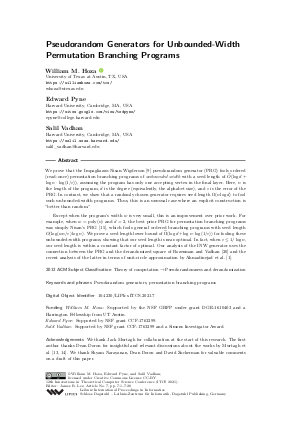LIPIcs.ITCS.2021.7.pdf
- Filesize: 0.6 MB
- 20 pages

 Creative Commons Attribution 3.0 Unported license
Creative Commons Attribution 3.0 Unported license




Feedback for Dagstuhl Publishing